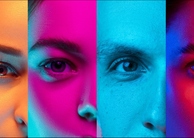The LGBT Movement in China: Public Perception, Stigma, and the Human Rights Debate
By
2016, Vol. 8 No. 12 | pg. 1/2 | »
IN THIS ARTICLE
KEYWORDS
Ever since its elimination from the list of mental illnesses in 2001, and decriminalization in 1997, homosexuality in China continues to be at the forefront of China’s growing human rights debate. The estimated 40 million lesbian, gay, bisexual, or transgendered (LGBT) Chinese1 are victims of violence or discrimination both inside and outside their families and do not have equal access to justice and social services, such a legal aid, counseling, or health-care due the predominantly negative public opinion regarding sexual orientation and gender identity2. Likewise, the portrayal of HIV/AIDS as a “gay problem” complicates the fight towards equality and basic human rights through legislative action because of its political weight and China’s fear of the disease. The overtly negative stigma associated with homosexuality prevents the LGBT movement from achieving major accomplishments in human rights because of society’s disapproval and the constant discrimination these individuals and organizations face. In fact, in a study conducted in 2013 by U.S. based research group Pew, a survey of 6,000 Chinese locals from all parts of China revealed that when asked, “Should society accept homosexuality?” 57 percent of responders said “No,” with only 21 percent of responders supporting homosexuality3. Echoing the Chinese Communist Party’s (CCP) position of “不支持, 不反对, 不提倡 (not encouraging, not discouraging and not promoting)4, the force for equal rights for the LGBT community lays in the hands of brave LGBT activists and organizations, both international and domestic, working in support of this marginalized minority, instead of the CCP. However, many of these individuals and organizations focus their efforts and resources in addressing specific human rights offenses, such as adoption and marriage laws5 that forbid LGBT individuals from starting a family, instead of directly fighting to change the overwhelmingly negative social stigma associated with homosexuality in China.LGBT organizations in China should focus the majority of their efforts on confronting social norms and stigma around sexuality and sexual orientation by advocating for new and comprehensive sexual health education in schools, training of educators, government officials, and health-care providers, and most importantly, increased education within the LGBT community. Only by educating the public on homosexuality and demystifying the lives of LGBT individuals will the Chinese LGBT population share the legal protections offered to their American counterparts, such as decreased discrimination, workplace equality, and eventually marriage equality. Therefore, LGBT organizations should focus the majority of their efforts on confronting social norms and stigma around sexuality and sexual orientation by advocating for new and comprehensive sexual health education in schools, training of educators, government officials, and health-care providers, and most importantly, increased education within the LGBT community. By educating these sectors, the LGBT community in China can eliminate stigma, discrimination, social exclusion and violence against the LGBT community based on actual or assumed HIV status, sexual orientation or gender identity, and then work to implement and enforce antidiscrimination and protective laws, based on human-rights standards. History and Social StigmaSince the Chinese government remains largely silent on the issue of human rights violations based on homosexuality, the stigma surrounding homosexuality in China continues to be inherently negative. Not only has the government’s impasse stalled any developments preventing and ending legal discrimination LGBT people in China face daily, but it also illuminates how the position and legal status of LGBT people in China, historically and presently, is still very unclear and in desperate need for clarification. In Chinese history, tolerance for male sexual diversity was accumulated and developed within literature, and was accepted by royal courts in as early as 650 B.C.6. However, intolerance for homosexuality grew towards the end of dynastic rule due to a shift in Chinese values and an increase in Western influence. Neo-Confucian familism resurfaced and Western missionaries brought religious materials that condemned homosexuality as a sin that should be punished and criminalized7. In addition, at the end of the devastating opium war, the Chinese began to wonder how foreigners could defeat them so easily and so began the careful study of Western ideas, which included texts that described homosexuality as a deviant behavior8. After the development of the Chinese Communist Party and creation of the People’s Republic of China, these negative views of homosexuality developed and compounded. During the Mao era, it was believed that homosexuality was a decadent and bourgeois practice, and therefore, gay men were arrested and publicly shamed or imprisoned. The psychology of homosexuality being a crime and a sickness continued throughout Mao’s tenure, extended to most of Deng Xiaoping’s time in office, and still exists in the majority of China today. "Of all the ways a son can be disrespectful to his parents, the worst is to have no offspring." Today, the resurgence and internalization of Chinese traditional values and homophobia within the Chinese population prove quite resistant to influence, which explains the negative stigma of and discrimination towards the LGBT population in China. In a study of gender, social background, and sexual attitudes among Chinese students, respondents stated that, “Chinese family morality is well embedded in the culture and traditional views of sex and marriage are still strong and may prove quite resistant to some modernizing influences”9. These strict familial values cause many LGBT individuals to feel trapped and unable to escape their own guilt because of their sexuality. Moreover, ‘filial piety’, or continuing the family line, is one of the most important Confucian doctrines emphasized in Chinese culture10 that many LGBT individuals believe is the root cause of their anxiety and decision to not disclose their sexuality to family and friends. A prominent Chinese philosopher, Mengzi, also extrapolates on this concept of filial piety, stating “of all the ways a son can be disrespectful to his parents, the worst is to have no offspring”11. This strong marriage pressure (婚礼压力) and pressure to have a child (生于压力)12 stems from the cultural significance attributed to having the younger generation care for the older people and to continue the family. Culturally speaking, homosexuality represents the end of the family line due to reproductive incapability, and potentially the idea of the homosexual abandoning the responsibility of caring for the older generation, resulting in alienation and a strong feeling of disappointment and shame on both sides. Because sexuality in China has been so intimately tied with family responsibility and reproduction for thousands of years, many LGBT individuals enter fake marriages to appease their parents and lie about their sexuality in fear of bringing homosexuality-related stigma and shame upon their families and themselves. Aside from historically traditional values that contribute heavily to the negative stigma associated with homosexuality today, the CCP’s pervasive control of civil society and traditional media restricts society’s ability to engage13 with and begin to better understand LGBT themes and the minority as a whole. Additionally, it prevents the discussion regarding the lack of basic human rights afforded to the LGBT population from developing into efforts to address problems related to stigma, prejudice, and social discrimination. According to the report titled, “The Legal Status and Position of Lesbian, Gay, Bisexual and Transgender People in the People’s Republic of China,” there are still many laws and regulations that continue to define homosexuality as ‘abnormal’ and fail to differentiate between sexually explicit and non-explicit LGBT content in broadcasts, television programs and films14. Because no differentiation exists and homosexuality exists in terms of an “abnormality,” media outlets refuse to include LGBT content or discuss LGBT related issues. Of the few stories that discussed the LGBT community, a recent media-monitoring project conducted by the Rainbow Media Awards found that among 931 media reports about the LGBT community in 2012, 50 percent portrayed the LGBT community negatively, and 17 percent associated homosexuality with crime and/or the spread of HIV15. This negative portrayal of LGBT individuals in China does nothing but fuel anti-LGBT rhetoric, increase the discrimination faced by LGBT individuals, and alienate an entire group of society. Unfortunately, the regulations against LGBT content in the media also extend to LGBT publications and discussions of LGBT-related issues, and are still actively enforced by the Chinese authorities. In 2009, the Beijing Cultural Law Enforcement Agency raided the Beijing LGBT cultural center and confiscated a number of LGBT publications, and the organization is still under active investigation for distributing illegal publication16. In this case, publications meant to help educate and support LGBT individuals and their families were found to be illegal, severely impacting the ability of one of the biggest LGBT organizations in Beijing to reach out to LGBT individuals while simultaneously reinforcing the anti-LGBT stigma present in the government. Additionally, LGBT individuals online have been threatened with an internet-filtering software, known as the Green Dam, which would block any website containing the word ‘gay’ or ‘同性恋’17. For many Chinese LGBT individuals, the Internet is the only place they feel comfortable exploring their sexuality and finding others within their community. It also serves as an important platform that allows the LGBT community to advocate, network, and promote their organizations. Although this filtering software did not come into fruition, the threat reinforced the position of the CCP and its discrimination towards LGBT members of society. The politicization of sex and the rhetoric surrounding sexuality lies at the very center of current debates regarding China’s human rights violations that occur as the state tries to regulate the private lives of its citizens, a debate to which the threat of AIDS has added a new dimension and increased levels of negative stigma towards homosexuality. In his work discussing homosexuality and AIDS prevention in China, scholar Rodney Jones explains the role of AIDS in the current discussion of LGBT rights and the discrimination they face, stating, “The spread of AIDS itself is used as a cultural tool to amplify state control over the lives of individuals”18. Because HIV is closely linked to behaviors traditional Chinese leaders as obscene and immoral, AIDS-prevention efforts are complicated and HIV positive LGBT individuals face double discrimination in their lives. These individuals receive discrimination for both their sexual orientation and their HIV status, which translates into discrimination within the health care system, which still forbids people from living with HIV to work for the State Civil Service System19. By discriminating against the LGBT community, individuals infected with the virus that face double stigma and social ostracism fear social pressures and do not get tested. According to a recent study involving testing a group of 500 gay men in Beijing for HIV, the results underlined the urgent need to reduce the stigmatization and discrimination towards HIV positive because of the high levels of undiagnosed HIV infections among this group20. The discrimination is so negative towards HIV that individuals would rather live with the virus, then have to live with and disclose their status because of the widespread fear of HIV/AIDS in China and its portrayal as a “gay problem.”Continued on Next Page » Suggested Reading from Inquiries Journal
Inquiries Journal provides undergraduate and graduate students around the world a platform for the wide dissemination of academic work over a range of core disciplines. Representing the work of students from hundreds of institutions around the globe, Inquiries Journal's large database of academic articles is completely free. Learn more | Blog | Submit Latest in Women's & Gender Studies |


















